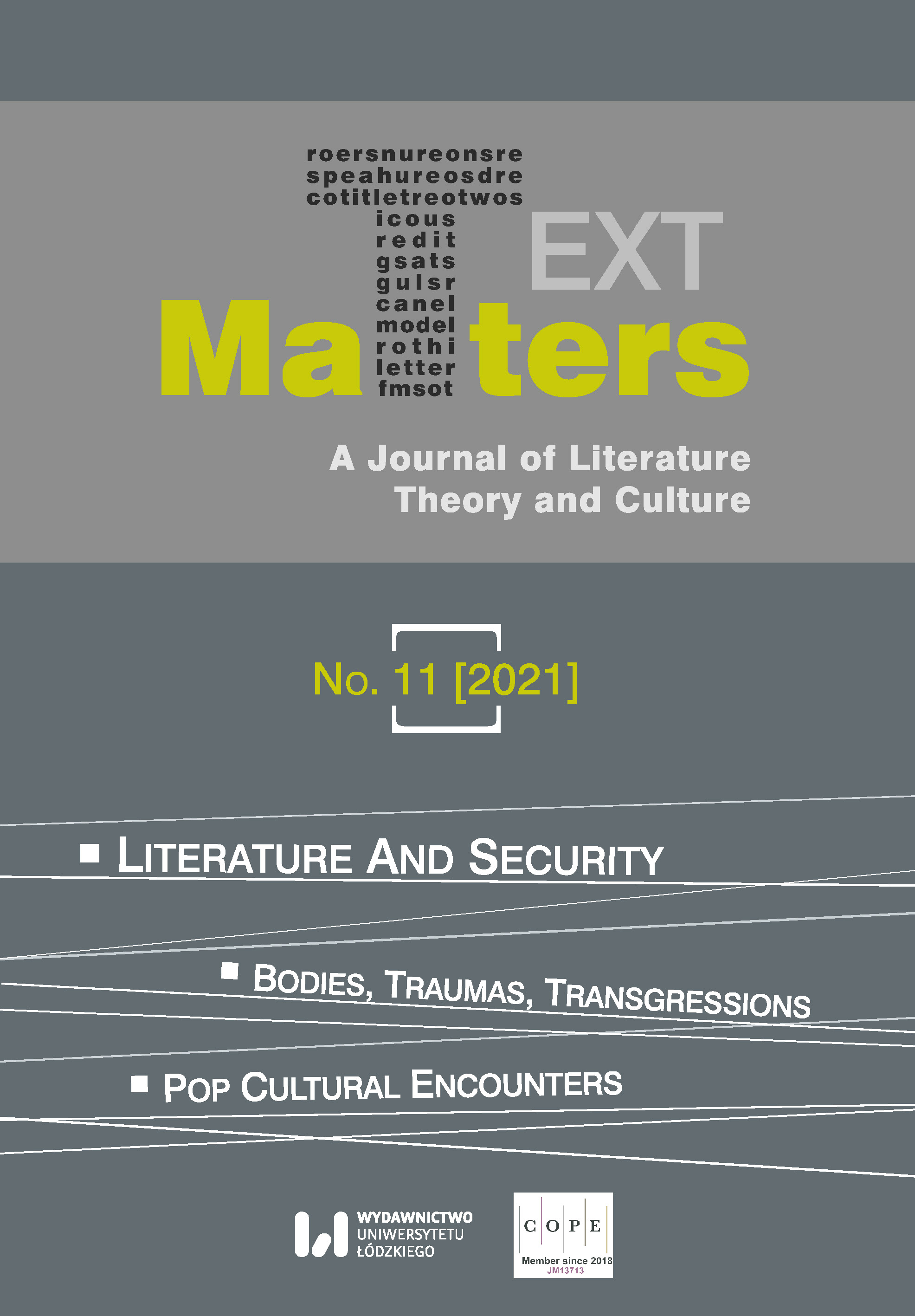The Gospel of Divine Mercy in King Lear
DOI:
https://doi.org/10.18778/2083-2931.11.20Keywords:
William Shakespeare, King Lear, gift, mercy, forgivenessAbstract
The paper discusses Shakespeare’s preoccupation with the Christian notions of divine love, forgiveness and justice in The Tragedy of King Lear. In my reading I employ Jean-Luc Marion’s phenomenological reflection on the givenness of love and Hans-Urs von Balthasar’s theology of Paschal mystery. I take issue with the Marxist and existentialist interpretations of Shakespeare’s tragedy which prevailed in the second half of the 20th century. My aim is not a simple recuperation of the “redemptionism” of the play, but an in-depth consideration of Christian allusions in the play which may tie love and forgiveness to justice and throw light on the ending of King Lear.
Downloads
References
Anderson, David K. “The Tragedy of Good Friday: Sacrificial Violence in King Lear.” English Literary History, vol. 78, no. 2, Summer 2011, pp. 259–86. https://doi.org/10.1353/elh.2011.0018
Google Scholar
DOI: https://doi.org/10.1353/elh.2011.0018
Battenhouse, Roy Wesley, and Marian Battenhouse. Shakespeare’s Christian Dimension. Indiana UP, 1994.
Google Scholar
Beckett, Samuel. Endgame. Faber & Faber, 2009.
Google Scholar
Cantor, Paul A. “What Cause of Thunder.” King Lear. New Critical Essays, edited by Jeffrey Kahn, Routledge, 2008, pp. 231–52. https://doi.org/10.4324/9780203090084
Google Scholar
DOI: https://doi.org/10.4324/9780203090084
Catherine of Siena. The Dialogue. Translated by Susanne Noffke O.P. Paulist, 1980.
Google Scholar
Cavell, Stanley. Disowning Knowledge in Seven Plays of Shakespeare. Cambridge UP, 2003. https://doi.org/10.1017/CBO9781139165129
Google Scholar
DOI: https://doi.org/10.1017/CBO9781139165129
Danby, John Francis. Shakespeare’s Doctrine of Nature: A Study of King Lear. Faber & Faber, 1949.
Google Scholar
Dollimore, Jonathan. Radical Tragedy. Religion, Ideology and Power in the Drama of Shakespeare and His Contemporaries. U of Chicago P, 1984.
Google Scholar
Foakes, R. A., editor. King Lear, by William Shakespeare, AS/Thomson Learning, 2005.
Google Scholar
Goodland, Katharine. “Inverting the Pietà in Shakespeare’s King Lear.” Marian Moments in Early Modern British Drama, edited by Regina Bucolla and Lisa Hopkins, Ashgate, 2007, pp. 47–74. https://doi.org/10.4324/9781315593890-4
Google Scholar
DOI: https://doi.org/10.4324/9781315593890-4
Kott, Jan. Shakespeare Our Contemporary. Translated by Bolesław Taborski. Methuen, 1967. https://doi.org/10.2307/1125124
Google Scholar
DOI: https://doi.org/10.2307/1125124
Kronenfeld, Judy. King Lear and the Naked Truth. Rethinking the Language of Religion and Resistance. Duke UP, 1998.
Google Scholar
Lanier Reid, Robert. Shakespeare’s Tragic Form: Spirit in the Wheel. U of Delaware P/Associated UP, 2000.
Google Scholar
Marion, Jean-Luc. Prolegomena to Charity. Translated by Stephen E. Lewis. Fordham UP, 2002.
Google Scholar
Matthews, Richard. “Edmund’s Redemption in King Lear.” Shakespeare Quarterly, vol. 26, no. 1, Winter 1975, pp. 25–29. https://doi.org/10.2307/2869263
Google Scholar
DOI: https://doi.org/10.2307/2869263
McDonald, Mark Allen. Shakespeare’s King Lear with the Tempest: The Discovery of Nature and the Recovery of Classical Natural Right. UP of America, 2004.
Google Scholar
Schwartz, Regina. Loving Justice, Living Shakespeare. Oxford UP, 2016. https://doi.org/10.1093/acprof:oso/9780198795216.001.0001
Google Scholar
DOI: https://doi.org/10.1093/acprof:oso/9780198795216.001.0001
Schwartz, Regina. “Revenge, Forgiveness, and Love.” Love and Forgiveness for a More Just World, edited by Hent de Vries and Nils F. Schott, Columbia UP, 2015, pp. 43–71. https://doi.org/10.7312/columbia/9780231170222.003.0005
Google Scholar
DOI: https://doi.org/10.7312/columbia/9780231170222.003.0005
Shakespeare, William. The Tragedy of King Lear. Edited by R. A. Foakes. AS/Thomson Learning, 2005.
Google Scholar
DOI: https://doi.org/10.1017/9780511819919
Snyder, Susan. “King Lear and the Prodigal Son.” Shakespeare Quarterly, vol. 17, no. 4, Autumn 1966, pp. 361–69. https://doi.org/10.2307/2867910
Google Scholar
DOI: https://doi.org/10.2307/2867910
Summers, Joseph Holmes. Dreams of Love and Power. On Shakespeare’s Plays. Clarendon, 1984.
Google Scholar
The Bible. King James Bible Online, https://www.kingjamesbibleonline.org accessed 2021.
Google Scholar
Von Balthasar, Hans-Urs. You Have Words of Life Eternal: Scripture Meditation. Translated by Dennis Martin. Ignatius, 2004.
Google Scholar
Wilson Knight, G. The Wheel of Fire. Interpretations of Shakespearean Tragedy. Routledge, 1989.
Google Scholar
Young, R. V. “Hope and Despair in King Lear. The Gospel and Crisis of the Natural Law.” King Lear. New Critical Essays, edited by Jeffrey Kahn, Routledge, 2008, pp. 253–77. https://doi.org/10.4324/9780203090084
Google Scholar
DOI: https://doi.org/10.4324/9780203090084
Published
How to Cite
Issue
Section
License

This work is licensed under a Creative Commons Attribution-NonCommercial-NoDerivatives 4.0 International License.













